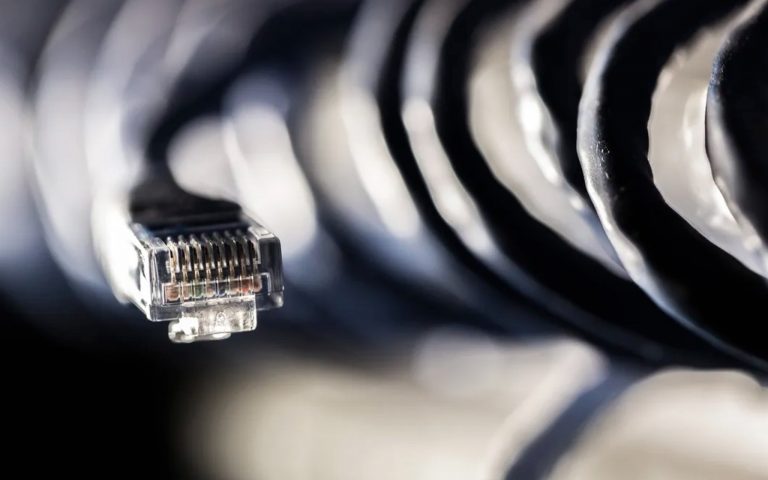There was once a time when the internet was only accessible via a modem connected to your phone line. You will hear an audible whir and ping as the modem phoned your carrier’s number and established a connection to their server, allowing you to download data at a 56kbps speed. During those times, we didn’t even imagine that we could enjoy internet speeds up to 1000Mbps.
Thanks to technological advancements, we get to enjoy faster and more stable internet that doesn’t require us to dial anything or wait more than 5 minutes to wait for a webpage to load. If you’re planning to choose an internet provider, you’ll have to choose between the four main internet types we have right now—DSL, satellite, cable, and fiber.
In this article, we’ll dig into the differences, advantages, and disadvantages of these internet types so that you can easily choose what’s the best for your home. Let’s begin!
Story Stages
Satellite Internet
Satellite internet uses a satellite dish for it to work properly. It’s not the best internet if you were to compare it to cable or fiber internet, but it certainly is the most accessible. Even if it’s not the fastest, it still delivers decent speeds that allow you to finish your online tasks, from browsing the web to video conferencing. Satellite internet does not require any phone lines, cable lines, or similar connections other internet types utilize.
Pros of Satellite Internet
As mentioned above, satellite internet is the most accessible internet type aside from dial-up. So, while it’s not an ideal internet plan for many who need higher speeds and data, it’s still better than dial-up or nothing at all.
Cons of Satellite Internet
The biggest disadvantage of satellite internet is that it is not as fast as DSL or cable. It can also be expensive, especially if you live in an underserved area or a remote location. Plus, you need to have a satellite dish on your property.
Best Satellite Internet Providers
The two leading satellite internet providers are HughesNet and Viasat. They both offer unique advantages and disadvantages, so it’s up to your preferences and how good is the network performance in your area.
DSL Internet
Digital Subscriber Line (DSL) internet operates like a dial-up, which uses the traditional telephone lines. However, DSL is much faster and doesn’t use the same line as your telephone, so you can use the internet and the phone simultaneously. Also, DSL speeds can reach up to 100Mbps, making it an excellent option for many.
Pros of DSL Internet
DSL is generally the most affordable type of internet compared to other internet types. Moreover, almost every cable company and other ISPs in the country offers a DSL option as well. If you’re planning to switch to a different internet provider, you’ll have numerous options.
Cons of DSL Internet
The further you are from the central office of the service provider, the slower your typical download and upload speeds will be. If you have a good connection, you won’t be able to reach the typical speeds of other internet types.
Best DSL Internet Providers
Some of the best and the most reliable DSL internet providers are AT&T, CenturyLink, and Frontier.
Fiber Internet
Fiber internet is the fastest and the most advanced internet type. It utilizes fiber optic technology that uses extremely thin glass or plastic wires, each about a tenth of the diameter of a human hair, to transmit data almost at the speed of light.
Pros of Fiber Internet
Fiber internet offers speeds up to 1Gbps or 1,000Mbps. Moreover, you get similar download and upload speeds, unlike other internet types. Because fiber isn’t powered by electricity, it’s unaffected by blackouts or being in close proximity to large electric equipment.
Cons of Fiber Internet
While it is the fastest, it’s the least accessible type of internet. Also, it can be more expensive than other broadband options.
Best Fiber Internet Providers
The leading fiber internet providers in the United States are Charter Spectrum, Verizon Fios, AT&T Fiber, and EarthLink Fiber.
Cable Internet
The same coaxial cables that carry your cable TV can also be used to deliver your cable internet service. Cable broadband offers download speeds ranging from 3 megabits per second (Mbps) to more than 100 Mbps. Additionally, the vast majority of cable providers offer TV, internet, and phone service in a single package deal.
Pros of Cable Internet
Cable broadband is extremely fast and reliable. Installation is usually a breeze as well. In most cases, you can add internet service to your cable TV subscription.
Cons of Cable Internet
It’s not always a nice experience dealing with the cable company. There are instances when you must sign a long-term contract in order to receive a good deal. If you become unsatisfied with your current service, it could be a massive issue.
Best Cable Internet Providers
Some of the best cable internet providers in the US are Xfinity, Cox Communications, and Spectrum.
Conclusion
Now that you know the different internet types, you can now easily choose what’s best for your household. Understand your needs, and choose wisely, especially if all these internet types are available in your area.
